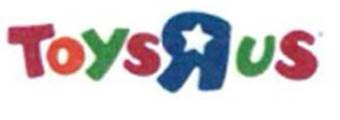James Green
Partner
Patent Agent, Trademark Agent
Article
5
On June 11, 2020 in Toys "R" Us (Canada) Ltd. v. Herbs "R" Us Wellness Society, 2020 FC 682 the Federal Court granted well-known Canadian retailer Toys R Us judgment against the operator of a Vancouver-based retail marijuana "dispensary" operating as "Herbs R Us".
Toys R Us is the owner of the following registered trademark (in addition to a family of related TOYS R US and "R US"-formative marks owned and used for decades in Canada):

In 2019, Toys R Us became aware of a business operating a "cannabis boutique" and "dispensary" under the trademark and trade name "Herbs R Us" in association with the following logo:

Toys R Us brought enforcement proceedings in the Federal Court alleging "depreciation of goodwill" in its registered trademarks contrary to s. 22 of the Trademarks Act, among other claims.
The Canadian "depreciation" action is similar to "dilution" or "tarnishment"-type claims in other jurisdictions and is intended to prevent misuse of a brand owner's rights even in the absence of infringement based on a likelihood of confusion or passing-off, though it has been rarely litigated in Canada. A successful depreciation claim requires the brand owner to prove that: (1) there has been trademark use of the brand owner's registered trademark or a mark "sufficiently similar" to the registered trademark to evoke a mental association between the two marks; (2) the brand owner's trademark is sufficiently well-known to have significant goodwill attached to it (though does not require that the mark be well-known or famous); (3) that the brand owner's trademark was used in a manner likely to have an effect on that goodwill; and (4) that the likely effect of that use would be to depreciate or damage the value of the brand owner's goodwill.
In this case, the Court first found that the strong resemblance between the HERBS R US logo design and Toys R Us' registered design mark were "so similar that a link, connection or mental association" between to the two marks was "all but inevitable and must be inferred to have been intended" notwithstanding any differences. Second, the Court found that there was significant goodwill in the TOYS R US trademarks based on evidence of significant and extensive use of those trademarks in Canada for many years. Third, the Court found that the requisite likelihood of a linkage or mental association between the parties' trademarks was established given the obvious similarities between the marks and evidence before the Court of a news article which drew an immediate connection between the Herbs R Us trademark and Toys R Us. Finally, the Court appeared to have no difficulty finding that there was a likelihood that the goodwill in Toys R Us' registered trademarks would be damaged or depreciated. Among other things, the Court noted that the creation of an association between Toys "R" Us and a cannabis "dispensary," particularly one that appeared to be operating without a licence, and which marketed itself through social media with adult-themed content, was "utterly inconsistent" with the reputation of the TOYS R US brand and that this association was likely to tarnish the goodwill associated with Toys R Us' trademarks.
In light of these findings, the Court awarded a permanent injunction against any further use of "Herbs R Us", and awarded Toys R Us damages and costs totalling $30,000.
This case is notable as it is a rare example of a successful claim for depreciation of goodwill, and joins a small handful of other cases where a claim under s. 22 of the Trademarks Act has been successfully prosecuted in the roughly six decades since remedies for depreciation became available in Canada.
The case is also the latest in a line of recent cases where trademark owners have chosen to bring enforcement proceedings to the Federal Court by way of the summary application procedure. The application procedure is quick, cost-effective, and proceeds to Court on the basis of a "paper record" consisting of affidavit evidence, avoiding the need for costly discovery or trial. The Federal Court's decision again shows that in the right circumstances, proceeding by way of an application has some distinct advantages over bringing a traditional action in Canada.
Lastly, it should be noted that the Federal Court convened the hearing in this case via Zoom videoconference, following the suspension of the Court's normal operations as a result of the COVID-19 global pandemic. Together with the Court's recently-announced initiatives to permit universal electronic filing of documents, this decision shows that brand owners remain able to quickly and cost-effectively access justice in Canada notwithstanding the ongoing disruption to the Court's normal operations.
Kelly Gill and James Green of Gowling WLG acted for Toys R Us.
NOT LEGAL ADVICE. Information made available on this website in any form is for information purposes only. It is not, and should not be taken as, legal advice. You should not rely on, or take or fail to take any action based upon this information. Never disregard professional legal advice or delay in seeking legal advice because of something you have read on this website. Gowling WLG professionals will be pleased to discuss resolutions to specific legal concerns you may have.